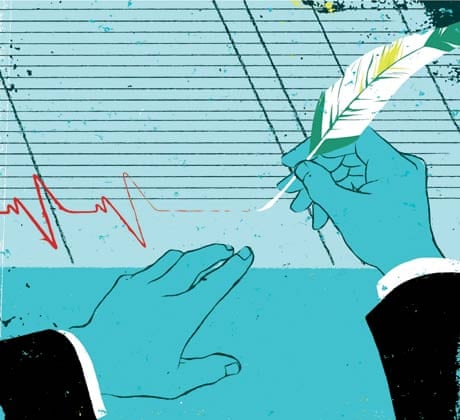In May 2005, the chairman and chief executive of the accountancy giant KPMG was told he had about 100 days left to live. I won't pretend I can imagine what it's like to receive any such sentence, but there is something about 100 days that seems especially formidable: it's nowhere near long enough to pretend it's far away, but neither is it so brief as to leave time only for hasty goodbyes. Enough time, in other words, to get a few things done, and one of the things Eugene O'Kelly did was to co-write a slim memoir with the arresting title Chasing Daylight: How My Forthcoming Death Transformed My Life. In the years since he died, in September 2005, it's become a cult among business-book readers – partly, of course, because it's no ordinary business book. Yet it remains, in crucial ways, a businessman's story. When O'Kelly, a hard-charging high-achiever, was told of his terminal brain tumour, he did what he'd always done when faced with complex challenges: he made a list.
According to cliche, O'Kelly ought suddenly to have seen the error of his work-fixated life and become an utterly different person. But while there's some of that in his book – he swiftly resigned his post – what's more striking is how much of the accountant's approach remains. "My sensibilities about work and accomplishment... were so ingrained in me from my professional life, and had served me so well in that life, that I couldn't imagine not applying them to the final task," he writes. "I needed to come up with new goals, fast." It was "the final and most important to-do list of my life" – but it was still a to-do list.
The list featured names of the people most important to him, and he set about contacting them in turn – meeting up, often in New York's Central Park, to perform what he calls an "unwinding" of their relationships, culminating in those with his wife and daughter. During these encounters, the ticking clock seemed to slow; jolted into the present moment, it was as if he was gaining time, not running out of it; his consciousness seemed to merge with the world; the separateness fell away. (It certainly helped, through all this, that he could easily afford good healthcare.) "You can call what I went through a spiritual journey," he concedes, a bit reluctantly.
Self-help advice from the dying – and O'Kelly intends his memoir as self-help, repeatedly urging readers to make a plan for their own death – is fraught with awkwardness. It seems wrong to analyse it too critically; I feel vaguely guilty for thinking that the genre's current bestseller – The Last Lecture, by the late computer scientist Randy Pausch – is little more than saccharine, follow-your-dreams pablum. (Christopher Hitchens, writing after his own cancer diagnosis, was less reticent about Pausch: "It ought to be an offence to be excruciating and unfunny in circumstances where your audience is almost morally obliged to enthuse.")
O'Kelly avoids this by declining to embrace the sweeping and empty language of too much "spiritual" writing, thereby proving it's possible to confront the biggest questions while retaining a methodical outlook. Nobody on their deathbed wishes they'd spent more time at the office, according to the old adage. (Which is, by the way, aggravatingly incomplete: it depends on the work, surely, and the alternatives.) But the mindset he'd learned at the office served O'Kelly well in dying. Accountants get to have spiritual experiences, too.

Comments (…)
Sign in or create your Guardian account to join the discussion